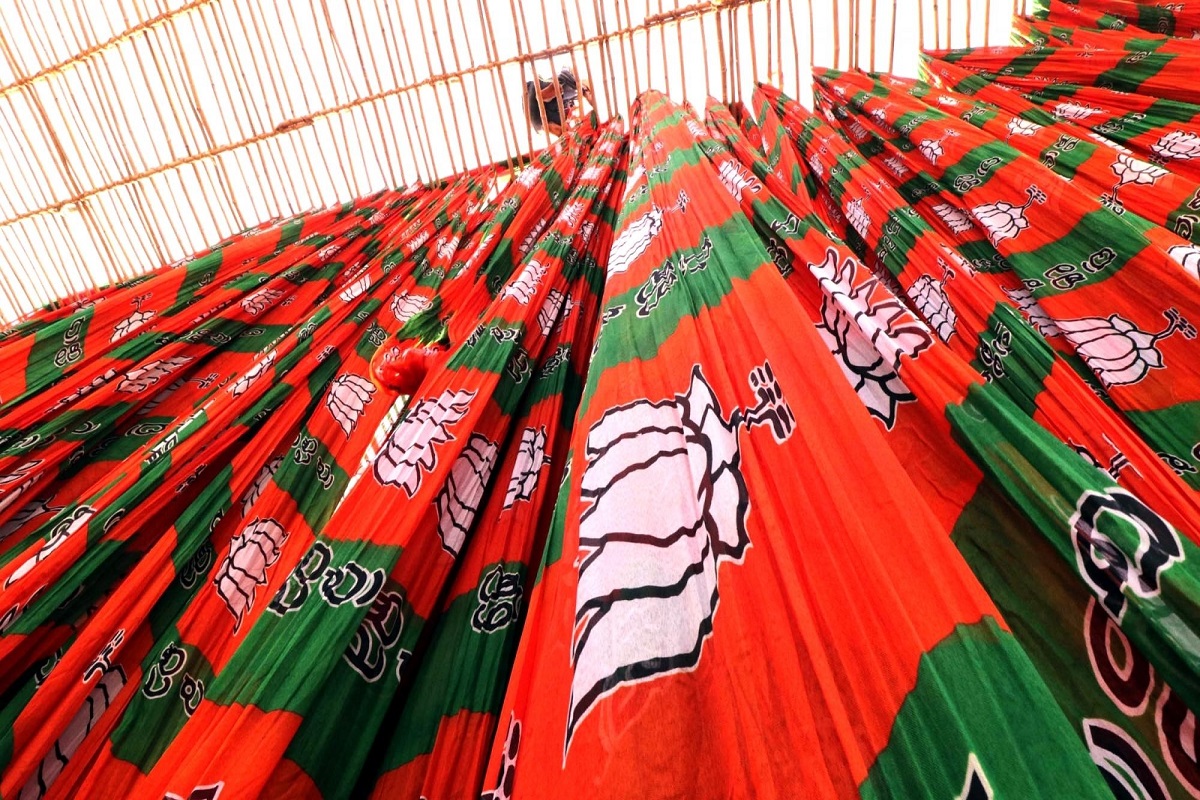PM Modi holds mega roadshow in Bhubaneswar
The entire 2.5 km stretch of the road from the BJP headquarters to Vani Vihar square came under a massive security ring as PM Modi embarked on his second roadshow in Bhubaneswar after five years.
Reports said after losing a series of assembly elections in some key states, such as Jharkhand, Delhi, Maharashtra, Andhra Pradesh, Odisha, Telangana, Madhya Pradesh, Rajasthan, Chhattisgarh, and also Bihar, the BJP doesn’t want to take any risk ahead of the Bihar polls.

Representational image (File Photo: IANS)
Apprehensive of “serious political repercussions” in the upcoming assembly elections in Bihar, the Narendra Modi government at the centre has reportedly put on hold a proposal regarding the OBC quota eligibility rules despite agreeing in principle. It has been reported in the media that the Modi government has decided in principle to increase the income cap for the creamy layer category of the other backward castes (OBC) from existing Rs 8 lakh to Rs 12 lakh.
Reports said after losing a series of assembly elections in some key states, such as Jharkhand, Delhi, Maharashtra, Andhra Pradesh, Odisha, Telangana, Madhya Pradesh, Rajasthan, Chhattisgarh, and also Bihar, the BJP doesn’t want to take any risk ahead of the Bihar polls. As such, Bihar has become a matter of prestige for the BJP and it wants to capture it at any cost to boost up its confidence.
So, even if the proposed increase in the income ceiling looks like benefiting more OBCs on the surface, the BJP is refusing to keep itself away from the tricky issue, experts say. The OBC constitutes about 56 per cent of the total population in Bihar against 15 per cent Upper castes—which include Brahmins-4 %, Bhumihars-5 % and Kayasthas-1%—who are considered the vote-bank of the BJP. So, very obviously, the BJP doesn’t want to take any risk at this crucial juncture.
Advertisement
In the last LS polls, quite a good percentage of OBC voters, especially Yadavs and other smaller castes, had voted in favour of the NDA. The end result was that the NDA was able to win 39 out of the state’s 40 LS seats in the state. It’s strange that the BJP is very cautious this time and has got totally dependent on chief minister Nitish Kumar, repeatedly describing him as the NDA’s face even at the peak of its popularity and refusing to project its own CM face. That is despite the fact that the LJP has repeatedly said it would go with the BJP’s decision. The LJP enjoys seven per cent of its solid vote-bank which has always been tilting the balance of victory.
“Modi’s proposed move to increase the creamy layer slab is like handing over a tattered fishing net to the fisherman after already completing the fishing. What’s the point in lifting the ceiling of a creamy layer when there is no job? Lakhs of people who have returned to their homes are well aware of that,” commented prominent political expert DM Diwakar.
On the surface, the lifting of the creamy level slab would mean more people from the OBC category to get the reservation benefits but that also means thinning opportunities for lower-income groups. “So, the idea is more like supporting the wealthier section in the OBC group than helping the poor among those,” he explained.
Another expert said the OBC reservation under the present regime has been under severe threats but the lack of unity among the groups has resulted in no protests over the issues unlike the Dalits who strongly protested on the streets and the government had to restore the old clause in the SC/ST (Prevention of Atrocities) Act.
“Possibly the reason behind this is that power struggle among the dominant backward castes such as Yadavs, Kurmis and Kushwaha has got saturated. So, attack on their reservation is not becoming an issue,” remarked another political expert Satyanarayan Madan.
Observers say the BJP is still to forget the severe poll disaster during the last 2015 assembly polls in the state when the NDA was able to win only 58 seats in the 243-member Bihar assembly. The BJP alone could win only 53 seats despite intensive campaigning by Prime Minister Narendra Modi who addressed as many as 30 election rallies—the highest by any Prime Minister in a state election.
One of the main factors that had apparently played the spoilsport was the statement by RSS chief Mohan Bhagwat about the review of reservation policy when the poll process was underway. Eagerly looking for some stronger issues, Lalu Prasad-Nitish Kumar combine was only quick to lap up the issue. The duo used this remark to create a fear among the vast backward and Dalit community that the BJP being remote-controlled by the RSS was hatching a conspiracy to scrap reservation policy.
A delayed explanation by the Prime Minister only added to BJP’s trouble as the masses read in his mysterious silence the “tacit consent” of the NDA government. By the time, the BJP people came out to clear the air over Bhagwat’s statement, the damage had already been done. Lalu and Nitish had fought the last elections together under the umbrella of Grand Alliance.
Advertisement